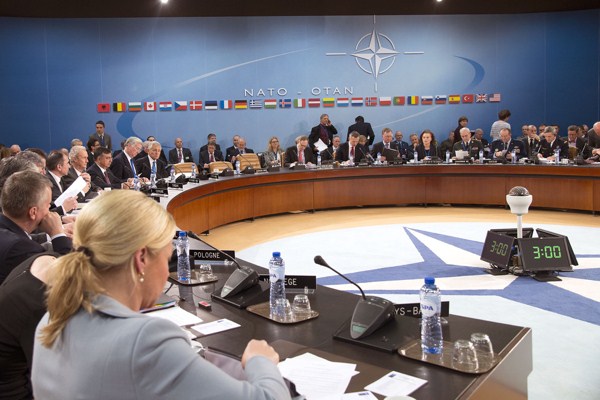Whether it was the deaths in the Mediterranean Sea of hundreds of migrants and asylum-seekers desperate to enter European territory or the latest atrocities carried out by the Islamic State in their Libyan enclave, this week’s headlines could not have come at a worse time for the leadership of the North Atlantic alliance.
Over the past year, NATO finally seemed on the verge of rediscovering a common purpose after two decades of trying out for different roles—a return to its original task of putting a brake on the westward spread of Russian influence and control from the Eurasian core into the European peninsula. Indeed, it was hoped that the threat represented by Russian President Vladimir Putin’s revanchist adventurism could motivate European governments into finally doing what previous exhortations, whether about the need to spread democracy or combat Islamic extremism, had failed to do: increase their defense expenditures. Trouble on the southern periphery, however, now competes with the newfound urgency of addressing problems on the eastern front.
Despite the often alarmist rhetoric, the reality is that Russia’s assertiveness only poses an existential threat to post-Soviet states that are not members of the alliance, such as Ukraine and Georgia, and to a small group of new NATO members, principally the Baltic states. Beyond that, Moscow seems eager to rekindle, if to a lesser degree, its sphere of influence in the Balkans, while getting Central and Western European states to acknowledge that Europe effectively ends at the borders of the former Soviet Union. This is not to minimize the dangers that these frontline countries face, but it helps to illuminate why the further west one travels in Europe, the less imminent a revived Russian threat appears to be. Critically, a major difference from the Cold War period is that there are no longer any fears of a domino effect, whereby a geopolitical rebalancing in Moscow’s favor in, say, Ukraine would put Germany, France or Italy at greater risk of invasion or occupation.

